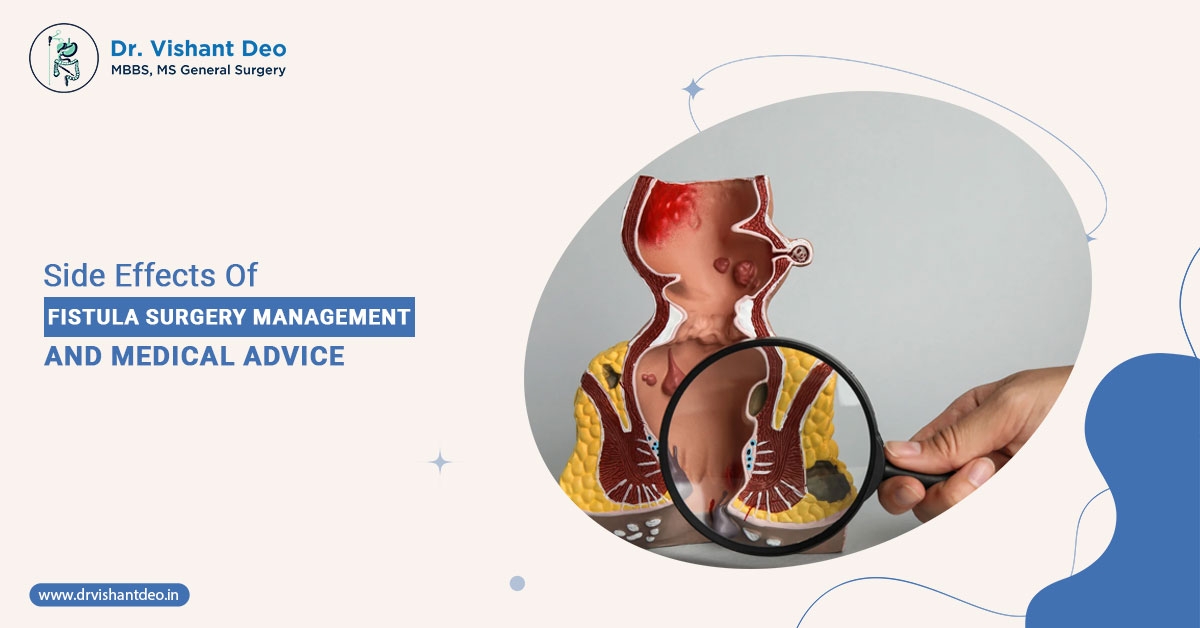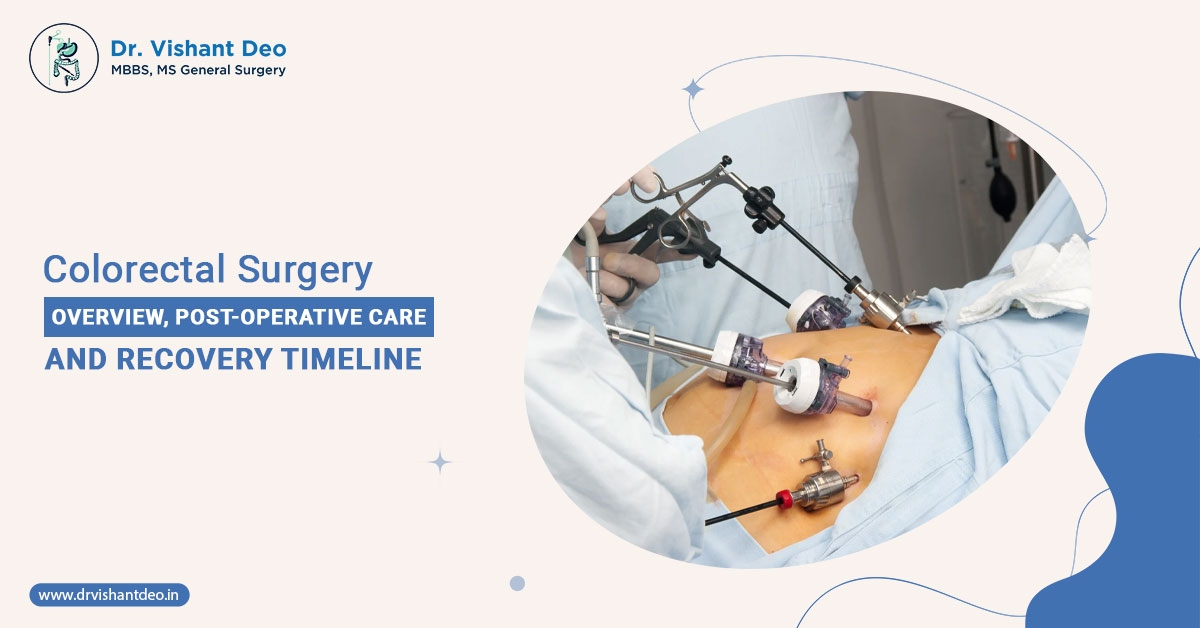Fistula surgery is one of the many common procedures, which involves the removal of a fistula from the anal region. While it is considered to be generally safe, there can be certain side effects that individuals would need to manage for effective recovery. If you are looking for fistula surgery in Siliguri, it is important to take note of the steps in the procedure along with the complications that may follow. In this blog, we will be assessing the anal fistula, the side effects of its surgery, and methods to manage them effectively.
Understanding Anal Fistula
A fistula is an abnormal growth caused by the drainage from the infected anal glands affected with perianal abscess. It is usually found in the exterior region of the anus, near the anal glands. It is also considered to be an abnormal growth which develops from the inside of the anus and extends to the outer region.
According to fistula surgery doctors, individuals who have chronic STIs, suffer from IBDs, or have a history of radiation therapy in the perianal region, are more vulnerable to this condition. If they are not treated in time, these can cause fistula extension, persistent infection, and in extreme cases, anal cancer.
Common side effects of fistula surgery
-
Pain and discomfort
Experiencing pain and discomfort after the surgery is normal as a major part of the boy is being impacted. 2-3 days post-surgery can be the most painful for patients. As the days pass, the pain subsides and can be managed with the help of antibiotics. Over-the-counter painkillers such as paracetamol and ibuprofen can help manage the pain effectively. -
Bruising and swelling
Due to the lacerations made by the surgeons, issues related to inflammation and tissue trauma are very common. However, these bruises start to heal in 1-2 weeks after the surgery. The best way to maintain them is by applying ice packs. -
Discharge and bleeding
After fistula surgery in Siliguri, the movement of an individual is very limited. Even a small impact on the surgical region can cause bleeding by hindering stitches. In case the surgery is not done properly, the wound can also bleed heavily. However, minor bleeding or yellowish discharge in the first few days is considered normal. -
Infection
If the fistula surgery is an open one, there is a chance of infection. This can happen if the wound is not cleaned properly or the immune system is compromised. Infections can also be caused due to poor drainage and tissue trauma. Some signs of infection would be increased redness, warmth, pus, and mild fever. -
Bowel Incontinence
While it is rare, at times, if the lacerations are too deep, in the case of complex fistula, the sphincter muscles can be damaged. This causes some individuals who get, to face a lissues related to bowel control. This loss of control is temporary, but may require antibiotics to be cured.
Managing the Side Effects
For those undergoing Fistula Surgery in Siliguri, managing side effects can help ensure a smoother recovery. With these management tips, you will also be able to lower the risk of complications. Here are key management strategies:
-
Maintain Proper Hygiene
Make sure to clean the surgical area gently after every bowel movement using warm water or sitz baths. Individuals should also avoid using harsh soaps or wipes that may irritate the skin. -
Use Sitz Baths
Soaking the affected area in warm water 2–3 times a day c an help yu to reduce pain, keeps the area clean, and enhance your recovery process. -
Follow Medication Guidelines
Always take the prescribed painkillers and antibiotics as directed. Skipping doses can harm th healing process and make you vulnerable to complications. -
Dietary Adjustments
By eating high-fiber foods, you can ensure soft stools and prevent constipation. Make sure to drink plenty of fluids as well. Additionally, you may also be prescribed a stool softener to ease bowel movements. -
Avoid Straining
During the first few weeks post-surgery, it is recommended that individuals avoid heavy lifting, strenuous exercise, or activities that put pressure on the pelvic region.
Conclusion
Recovery is not just about healing physically, but also about regaining comfort, confidence, and control over your everyday life. With the right post-operative care, fistula surgery can provide long-lasting relief and enhance your quality of life. Every step in the recovery process counts, from food adjustments and cleanliness habits to prompt medical advice.
If you are planning to get fistula surgery in Siliguri, make sure you choose a reputable facility or surgeon who has experience treating both basic and complicated fistulas.







